Too many leaders underestimate the importance of, and their role in, talent management. While it makes intuitive sense, it is now analytically clear that business leaders who are strong at talent managementbeing both committed and effectiveget much better results. By focusing their talent management strategies and their own personal activities, the best executive talent managers generate as much as a 7% boost in revenue and profit performance over their less talent-focused peers. In addition, they achieve higher talent outcomes across-the-board, including employee effort levels that are 25% higher than average and markedly better retention rates (with less than one in ten of their employees at risk of turnover). Despite the compelling financial returns, Corporate Leadership Council (CLC) research shows that only 19% of senior executives are committed to, and effective at the talent management disciplines necessary to achieve these outcomes. We call those executives who do outperform Talent Champions.
The Business Case: Driving to Better Talent Outcomes Matters
Impact of Key Talent Management Disciplines on Business Revenue and Profit
Average Impact = 7% for Revenue, 6% for Profit
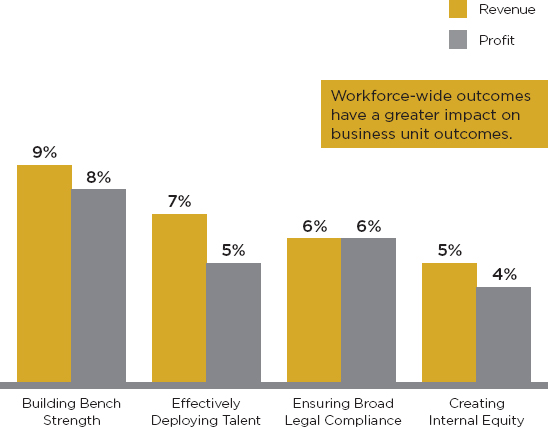
Source: CLC Talent Management effectiveness Survey; Corporate Leadership Council research.
Executives Committed to and effective at Talent Management Outperform
Distribution of Business Leader Commitment and effectiveness

Source: CLC Talent Management effectiveness Survey; Corporate Leadership Council research.
The Corporate Leadership Council compared the profiles, practices, and positions of Talent Champions against the average executive manager to understand Talent Champions distinguishing characteristics. Three important findings emerged:
 Most executives have the ability.
Most executives have the ability.
Senior executives do not lack the ability to be better talent managers. In fact, almost all executives have the business acumen and management skills to effectively manage their human capital. The knowledge and skills most important to being a Talent Champion are also those most important to being an effective business leader: resource management, performance management, ethics, and inspirational communication. In summary, the highest returns on talent management come from approaching it like any other business challenge or priority. Executives yield the best results when they apply core business management skills to their talent management activities.
Business Leader effectiveness at Key Skills and Knowledge
Percentage of effectiveness
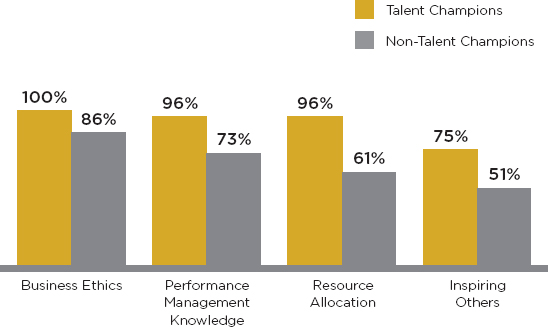
Source: CLC Talent Management Effectiveness Survey; Corporate Leadership Council research.
 Most executives lack the commitment.
Most executives lack the commitment.
The level of commitment to strategically managing talent management is the issue. Rather than ability, what distinguishes Talent Champions from their peers is their level of commitment to managing talent strategically as a top business priority. Talent Champions view their people strategy as a critical input into business strategy, ensuring these strategies are based on a strong talent plan that explains how staff will be developed, deployed, and enabled to meet business objectives. Unfortunately, many executives simply do not believe that having a strong talent strategy matters. In fact, most executives spend too much time on day-to-day talent management activities and not enough time on building the longer-term talent strategies their businesses require.
 Getting better results does not require more time, just more focus.
Getting better results does not require more time, just more focus.
Understandably, many executives worry that they cannot aff ord the time it takes to be an effective talent manager. Fortunately, getting better talent results is not a factor of time spent; Talent Champions spend no more time on talent management than less effective managers. What distinguishes Talent Champions is their focus on a narrower, more strategic set of talent activities; they focus on the right activities not simply more activities. In fact, Talent Champions frequently avoid the less scalable, employee-by-employee activities dictated by management conventional wisdom and rely on their organization and their HR generalist to give them leverage.
TALENT CHAMPIONS FOCUS ON THE FOLLOWING FIVE ACTIVITIES
Identify and Engage Your High-Potential Staff
The most important talent management activity for senior business executives is identifying, developing, and managing high-potential (HIPO) employees. High-potential employees are three times more valuable than the average employee. Unfortunately, the number of employees we can confidently label as high potential has dropped by as much as a 50% across 2009 and 2010. This attrition in the HIPO population is largely a result of increasing disengagement and discontent with their roles and their careers. To re-engage your HIPO, you should:
 Identify Your High Potentials, but Do Not Confuse High Performance with High Potential. While it is true that all HIPOs are high performers, it is not true that all high performers are HIPOs. In fact, more than 70% of high-performing employees do not qualify as HIPOs. Designate HIPOs as those high performers who also have high levels of engagement, strong abilities, and the aspiration to contribute at the highest level.
Identify Your High Potentials, but Do Not Confuse High Performance with High Potential. While it is true that all HIPOs are high performers, it is not true that all high performers are HIPOs. In fact, more than 70% of high-performing employees do not qualify as HIPOs. Designate HIPOs as those high performers who also have high levels of engagement, strong abilities, and the aspiration to contribute at the highest level.
 Create and Assign HIPOs to Business Critical Roles. Take the lead in identifying business critical roles for your HIPOs across the organization. Assign them to these important business projects and remove the common barriers to employee movement, such as talent hoarding and manager risk aversion.
Create and Assign HIPOs to Business Critical Roles. Take the lead in identifying business critical roles for your HIPOs across the organization. Assign them to these important business projects and remove the common barriers to employee movement, such as talent hoarding and manager risk aversion.
 Communicate Long-Term Career Paths. Surprisingly, more than 80% of HIPOs report uncertainty about their long-term career path with their current organization. Talent Champions actively engage in career discussions with their best talent, laying out longer-term paths and increasing employee confidence in their careers.
Communicate Long-Term Career Paths. Surprisingly, more than 80% of HIPOs report uncertainty about their long-term career path with their current organization. Talent Champions actively engage in career discussions with their best talent, laying out longer-term paths and increasing employee confidence in their careers.
Link Strategic Planning and Talent Planning
Talent Champions regularly embed talent planning into all their business planning and budget-setting activities. They ensure that human resources are allocated like any other critical business resource by considering, acquiring, developing, and allocating talent to best support business goals.
An effective talent strategy is characterized by a strong workforce and leadership succession plan. These plans should, even for your seniormost manager team, assess future talent needs, estimate potential labor supply constraints, and establish the required build or buy plans to secure critical talent resources. A strong succession plan will not only identify successors for each critical role in the enterprise (a minimum of two successors per position), but it will also include detailed development and career plans for these staff members.

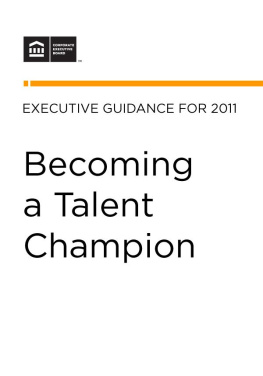
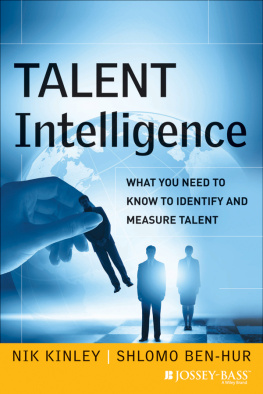

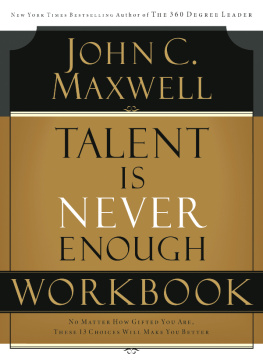
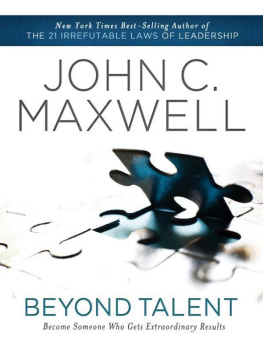
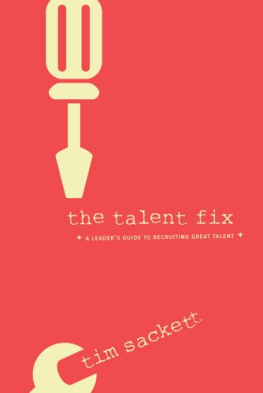
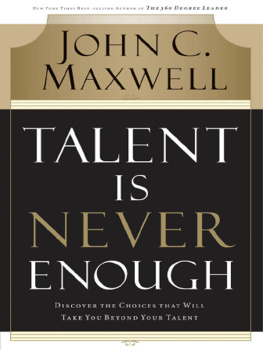
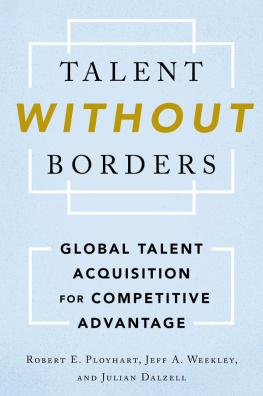
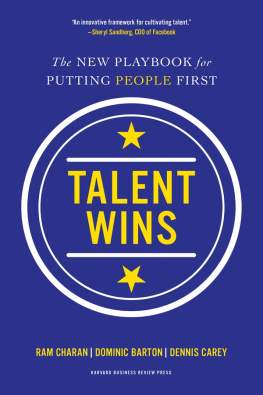



 Most executives have the ability.
Most executives have the ability.